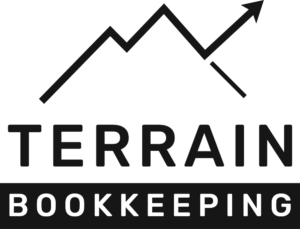 Running a veterinary clinic is demanding enough—appointments, patients, staff, and clients. But add bookkeeping into the mix, and the challenges multiply. Many owners struggle because your average bookkeeper simply doesn’t fully understand the unique needs of bookkeeping for veterinary clinics.
Running a veterinary clinic is demanding enough—appointments, patients, staff, and clients. But add bookkeeping into the mix, and the challenges multiply. Many owners struggle because your average bookkeeper simply doesn’t fully understand the unique needs of bookkeeping for veterinary clinics.
General bookkeepers often miss the details—like separating income from exams, boarding, surgeries, and special services—or overlook tricky expenses like property, equipment and staff costs.
1099s are another common pain point. With relief vets, specialists, and contractors in the mix, it’s easy for payments to slip through the cracks—then tax season becomes a scramble. A bookkeeper with veterinary experience helps you stay ahead so nothing slips through the cracks. For practical tips, see our guide: How to Prepare for 1099 Filing Season: A Guide for Vet Clinics.
Hiring local or in-house might feel like the answer, but it often means limited talent to choose from—plus the added cost of salaries and benefits. Even then, you may end up with a bookkeeper who lacks the industry knowledge to make your financials truly actionable.
That’s where veterinary-tailored remote bookkeeping comes in. A dedicated veterinary bookkeeper can help you with accurate, insightful financials without the constraints of traditional hiring.
Why Veterinary Expertise Matters in Bookkeeping
 Not all clinics are the same—and your bookkeeping shouldn’t be either.
Not all clinics are the same—and your bookkeeping shouldn’t be either.
Brick-and-mortar clinics often juggle multiple services under one roof: exams, surgeries, boarding, and even retail. Tracking revenue and expenses at a granular level is essential to know which services are most profitable. A vet-focused bookkeeper can help organize and clarify these numbers so you can make informed decisions every month.
Specialty clinics, like cardiac, oncology, or orthopedic practices, face unique financial challenges. High-cost equipment, specialty billing, and complex service lines can trip up bookkeepers who aren’t familiar with the industry. Veterinary bookkeepers know your unique challenges and make sure nothing slips through the cracks, so your financials reflect the realities of your practice.
MSOs (Management Services Organizations) operate multiple clinics under one umbrella, adding layers of complexity: consolidated reporting, inter-clinic allocations, and compliance across locations. A veterinary bookkeeper knows how to help structure your bookkeeping so growth decisions are informed by reliable, consistent data.
Mobile clinics face yet another set of challenges. Between payment points on the go, vehicle and equipment expenses, fuel and maintenance costs, and the logistics of traveling to multiple locations, tracking your finances can get complicated fast. You need a bookkeeper who will help organize your numbers so you can see where your mobile practice is profitable and identify opportunities to streamline.
By understanding the specific needs of each clinic type, a veterinary-focused bookkeeper ensures your books aren’t just accurate—they’re actionable.
Industry Standards That Make a Difference
 Veterinary bookkeeping isn’t just about keeping clean records—it’s about making sure your data aligns with the systems and benchmarks that matter in your industry.
Veterinary bookkeeping isn’t just about keeping clean records—it’s about making sure your data aligns with the systems and benchmarks that matter in your industry.
That’s why your bookkeeper needs to use the AAHA Chart of Accounts – the gold standard for veterinary financial reporting – or a version of it. With AAHA-compliant bookkeeping, your revenue and expenses are categorized in a way that makes sense for veterinary medicine. That means clearer insights, easier comparisons, and the ability to measure your performance against industry standards.
For clinics that participate in the Veterinary Management Group (VMG), a veterinary-focused bookkeeper can even take it a step further. VMG requires accurate, detailed reporting so members can benchmark against their peers and make data-driven decisions. The bookkeeper you’re looking for will know exactly how to prepare these reports, so you’re never scrambling to translate your books into a format that works for VMG.
Without veterinary know-how, bookkeepers often file your numbers into buckets that look neat but don’t actually tell you anything useful. Experienced veterinary bookkeepers align your bookkeeping with AAHA and VMG standards so your numbers aren’t just neat and compliant—they’re meaningful, comparable, and ready to guide real decisions.
Bookkeeping for Veterinary Clinics: Why Remote Support Works Best
Specialization matters, but how that expertise is delivered is just as important.
Hiring someone in-house may feel like the safest option, but the reality is it comes with high costs—salaries, benefits, and the overhead of managing another employee. Limiting your search locally also means you’re drawing from a smaller talent pool, which makes it even harder to find someone with true veterinary experience. And while general bookkeeping approaches might cover the basics, they often don’t give you the level of clarity a clinic needs.
On the other end of the spectrum, leaning heavily on your CPA usually means you only get big-picture insights once a year at tax time. That leaves most clinic owners either overpaying for support or operating without enough financial clarity.
Remote bookkeeping is the better middle ground. It gives you access to a nationwide pool of veterinary experts without the cost and commitment of an in-house hire. It also bridges the gap between daily operations and annual tax prep. And because it’s flexible, you can scale services up or down without the headache of hiring additional staff.
Thanks to cloud-based tools, your bookkeeper can keep things accurate and up to date every single month—no matter where you’re located. That way, your CPA can focus on compliance, while your remote bookkeeper allows you to have the financial understanding you need to make confident decisions all year long.
Best of all, remote bookkeepers see patterns from clinics all over the country—so they can spot problems before they ever land on your desk. From providing the data you need for revenue tracking to 1099 preparation, you’re informed so you never have to scramble at the last minute.
Conclusion
 Managing veterinary clinic finances takes more than basic bookkeeping. Remote veterinary bookkeeping turns your numbers into a tool for growth, not a headache.
Managing veterinary clinic finances takes more than basic bookkeeping. Remote veterinary bookkeeping turns your numbers into a tool for growth, not a headache.
Remote veterinary bookkeeping combines industry knowledge with the flexibility of remote services. Whether you run a brick-and-mortar clinic, a specialty practice, an MSO, or a mobile unit, working with the right team can help you understand your numbers, prepare for compliance like 1099 filing, and feel confident making financial decisions.
If you’re considering veterinary-focused remote bookkeeping, it’s worth working with a team that already understands the challenges and opportunities unique to your practice.
At Terrain Bookkeeping, we specialize in veterinary clinics. We provide remote bookkeeping for vet clinics nationwide that meets the unique needs of your practice—so you can spend less time worrying about numbers and more time caring for your patients.
If you’re ready to spend less time on numbers and get back to what you got into veterinary medicine for in the first place, let’s talk about how Terrain Bookkeeping can support your practice.



